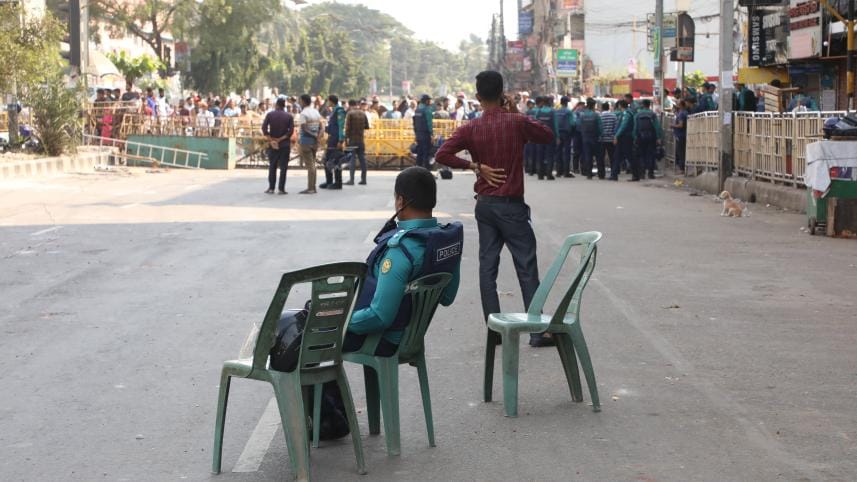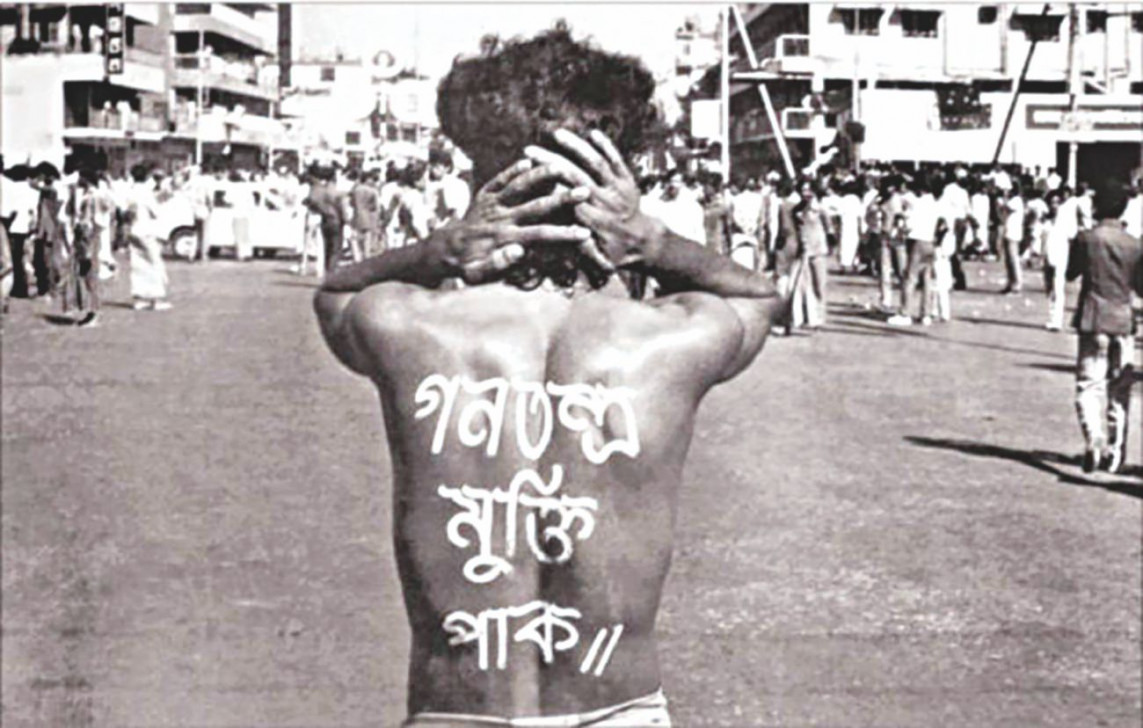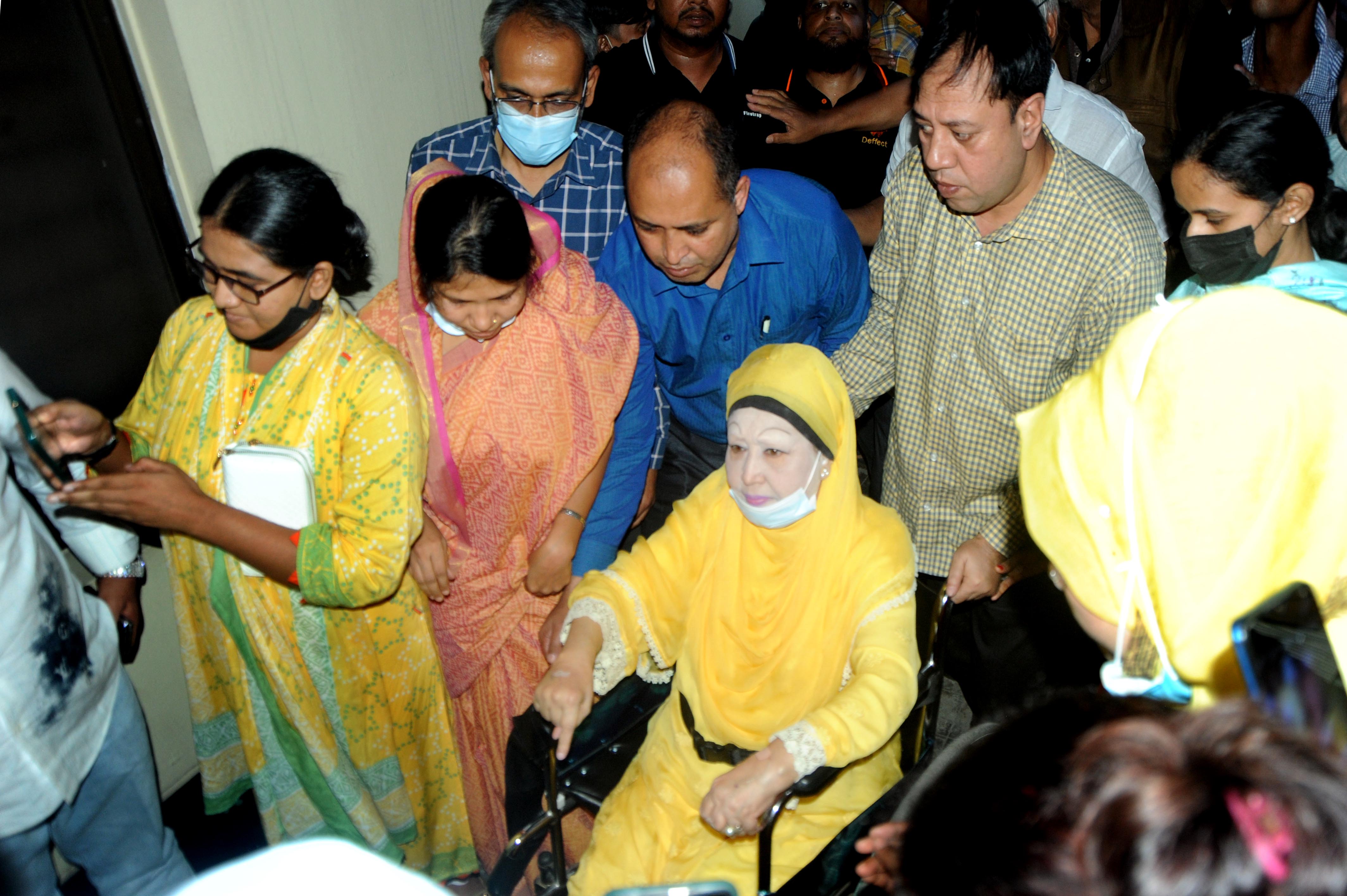Why would anyone want to repeat December 10?

Hearing the ruling party's general secretary say that the BNP's October 28 rally in the capital would face a similar reaction as did the one on December 10 last year, we can now gauge what the intention of the government is. Perhaps, many of us have already started adjusting our diaries, out of fear of violence or to avoid harassment in the name of heightened security. The possibility of another unannounced shutdown (better to be called a hartal enforced by the supporters of the ruling party) may also encourage them to leave Dhaka simply to avoid any additional suffering.
The warning given to BNP by Awami League General Secretary Obaidul Quader for its expressed intent is undoubtedly worrying and deplorable. On the other hand, it is also an admission that the government did crack down on the opposition on December 7, 2022, for which they had so far put the blame on BNP's alleged subversive activities.
Many questions still remain unanswered as to why the government was so desperate to deter BNP from holding a mass rally in front of the latter's central office, to the extent that police had to storm the party office in Nayapaltan, clear the whole area, and term it a no-go zone for about a week. Can anyone forget that a simple dispute over a venue had caused so much trouble not even a year ago?
There's little doubt that the government's refusal to participate in open talks with the opposition – and find a way of holding a credible election according to international standards – is prolonging BNP's agitation. To make things worse, the ruling party's counter programmes, aimed at keeping a hold on the streets, have already caused trouble across the country as AL members have interpreted this as a directive to deny the opposition any space for holding protests.
In the end, the authorities did allow BNP to hold its grand rally on the day, only a few kilometres away. But in the meantime, one person had to die, tens of people were injured, and a couple of the opposition's top leaders were imprisoned. It was then reported that police had fired at least 1,780 rounds of rubber bullets, tear gas canisters, and sound grenades during the clash. Instead of a supposedly day-long disruption to normal city life, it became such a prolonged nightmare for citizens that the restriction of their movement did not stop at random frisking/checking of people and vehicles, but also infringed their rights to privacy by way of law enforcers going through the contents of citizens' personal mobile phones.
The violent suppression of the opposition's protest also alarmed the international community. Expressing concerns over reports of intimidation, political violence, harassment by police, arrests of opposition party members, and restrictions on the ability of opposition parties to meet and hold peaceful rallies, the United States called for guaranteeing the right to peaceful assembly and refraining from using excessive force against protesters. The UN and a number of rights groups also joined voices in support of allowing peaceful protests.
Early indications, such as suing and detaining opposition activists on charges of alleged "subversion," suggest that the threat of the December 10 situation being repeated should not be taken lightly. Despite the fact that the nature of our politics is historically confrontational, the current round of protests spearheaded by BNP is reasonably peaceful. But the vocabulary used by leaders of the ruling party, and by Obaidul Quader in particular, seem to be aimed at fuelling anger and escalating tension. Human Rights Watch has already called it, saying "threats against opposition leaders undermine election integrity." Quader's earlier warnings include a threat of "pouring uranium" on the head of BNP Secretary General Mirza Fakhrul Islam Alamgir and not allowing him to return to Dhaka.
Many observers have hoped that the ruling party will change its strategy and strive to improve the political climate ahead of the election, since the government has been seen trying to convince the international community that it will deliver a free and fair election. Despite this pledge, the international community is far from convinced due to the controversies surrounding the elections in 2014 and 2018. The current Election Commission, too, has admitted that it's been a victim of the fallout of those sham elections. Given this context, the US announced a visa policy regarding "individuals responsible for, or complicit in, undermining the democratic election process in Bangladesh."
There's little doubt that the government's refusal to participate in open talks with the opposition – and find a way of holding a credible election according to international standards – is prolonging BNP's agitation. To make things worse, the ruling party's counter programmes, aimed at keeping a hold on the streets, have already caused trouble across the country as AL members have interpreted this as a directive to deny the opposition any space for holding protests.
It is quite perplexing why the government seems set to repeat the measures that led to horrifying consequences between December 7 and 11 in 2022. No one wants to see the SWAT being deployed in battle gear to tackle a political protest. If a political party wants to stage a sit-in protest, why should they be denied that right? Didn't the Awami League itself stage such protests many years ago, and in order to demand the introduction of a caretaker government system, no less?
In any case, resolving differences over election management, instead of suppressing protest, would also be in the best interests of the country's economy. The US visa policy, undeniably, has unnerved our business community the most as they can ill afford any penalty imposed on the economy, which has already been experiencing its devastating shocks.
Kamal Ahmed is an independent journalist. His X handle is @ahmedka1
Views expressed in this article are the author's own.
Follow The Daily Star Opinion on Facebook for the latest opinions, commentaries and analyses by experts and professionals. To contribute your article or letter to The Daily Star Opinion, see our guidelines for submission.




 For all latest news, follow The Daily Star's Google News channel.
For all latest news, follow The Daily Star's Google News channel. 


Comments